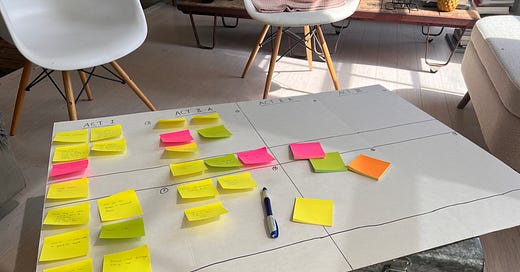REBRIEF: don't be too good at a job you don't want
when to be reluctantly competent instead of simply competent
Welcome to debrief! This newsletter is on pause and will be sent out semimonthly while I finish writing my book. Please enjoy this writing and life update, as well as an essay from the archives. Thank you so much for reading—I can’t wait to be back in full force!
HELLO!!!!!
I am very excited because I am 55,735 words into the second draft of my book—which is actually a complete rewrite because I hated my first draft so much, I completely shelved it—and am finally feeling excited about the book! After the first draft, part of me regretted embarking on this journey in the first place. My first draft was aimless, meandering, at times (okay, often) self-indulgent—just a bunch of words in search of a why.
So I went back to the drawing board. Even though my book is nonfiction, upon the advice of my editor, I read1 up on storytelling:
The Hero with a Thousand Faces by Joseph Campbell: a cross-cultural study of how the hero’s journey shows up in myths across geographies and history. Campbell convi…




